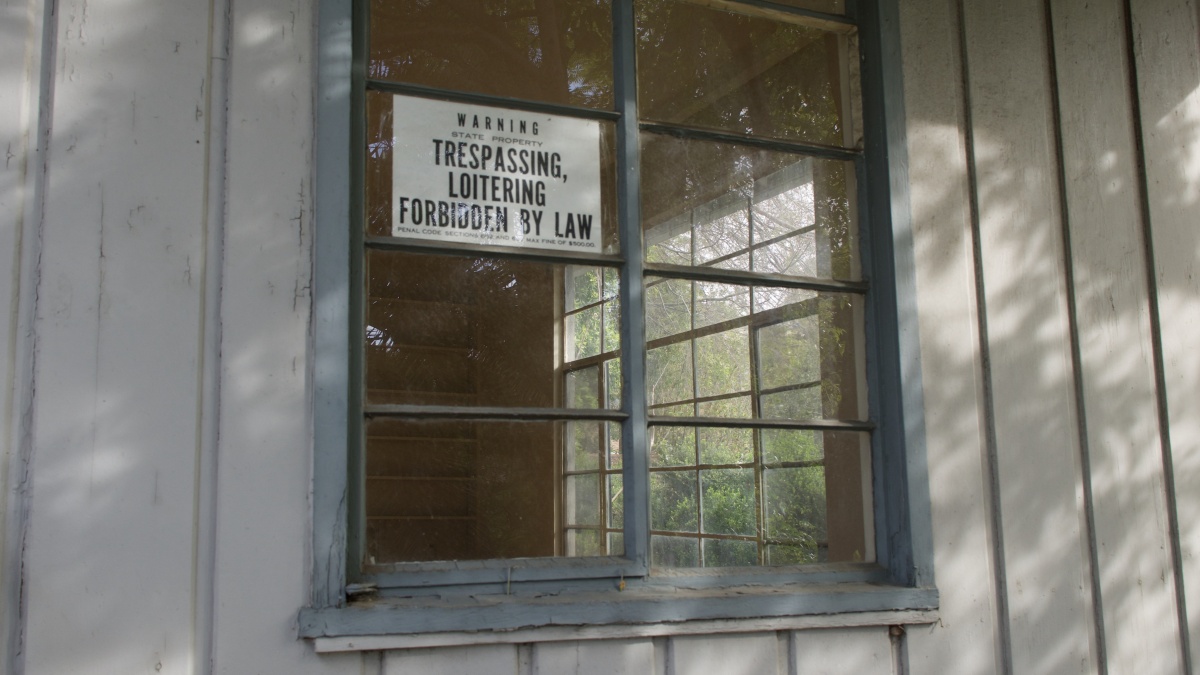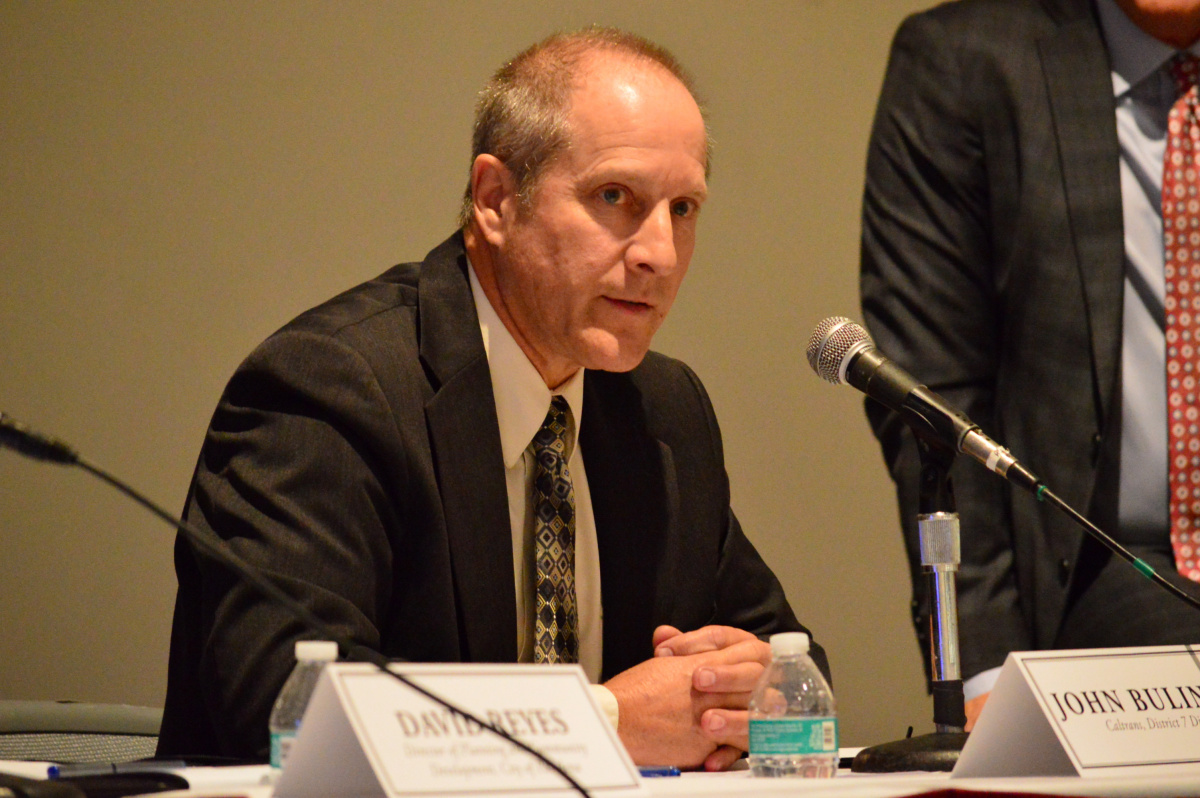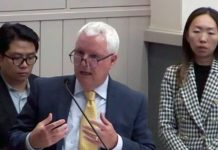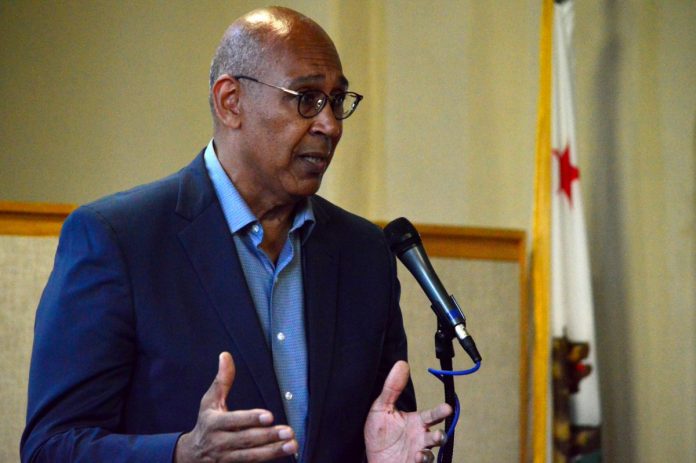In the latest of a series of updates from South Pasadena’s state and federal legislative representatives, Assemblyman Chris Holden (D-41) on Wednesday began with a reflection on how swiftly things changed during the legislative season in Sacramento. The Council has previously heard from State Senator Anthony Portantino and Congressman Judy Chu.
“We entered 2020 with the wind at our back, with low unemployment and a healthy state budget reserve” Holden told city council members during a special meeting held via teleconference. Four months later the state is looking at a $54.3 billion “budget problem,” has lost 2.3 million jobs and faces an unemployment rate of at least 15.5 percent—and over 20 percent in LA County.
The good news, he said, is the deficit figure — which includes projected shortfalls in both the current and coming fiscal years — needn’t be resolved in one year. But the budget revisions proposed by Governor Newsom in May are strong medicine — a $3.5 billion decrease in annual Proposition 98 funding for K-12 education, $11 billion less for schools and community colleges and elimination of the 2.3 percent cost of living adjustment, among others.

Holden said the governor has proposed $4.4 billion in discretionary, one-time payments to ameliorate school closures due to COVID-19 and said there is “payback schedule” for the education cuts. However, the state is also relying on a $14 billion contribution from the federal government, which is subject to some challenges, namely, “what if we don’t get it?”
After consultations with local governments, businesses and citizens about the governor’s proposed revisions, the Assembly set a path for approaching the Senate and Administration. First, he said the state has allocated $8.6 billion in direct spending for COVID-related impacts to education, public health and homelessness. The state secured a disaster declaration making it eligible for federal reimbursement of up to 75 percent of these costs and the state’s financial picture will become clearer when figures come in on July 15 for personal and corporate income tax receipts.
The governor’s “May revision” proposes new plans for $750 million in prospective federal funds — $150 million is already slated for Room Key program purchases of hotels and motels to be operated by local governments and nonprofits for homeless. There’s also the state’s portion of CARES act funding for local governments, including $450 million for cities that did not previously receive a direct allocation and $1.3 billion for counties.
Holden said that is not enough, however. He wants to use the Federal Reserve’s Municipal Liquidity Facility (MLF) to help cities with COVID cash-flow pressures. The Fed authorized $500 billion for use in all 50 states but allows direct applications only from counties with more than 2 million people and cities with over 1 million. The Fed lowered the direct application thresholds April 27 to counties with at least 50,000 and cites of at least 250,000, but that still leaves out every city in LA County except Los Angeles.
Hence AB 2707, Holden’s legislation requiring the state Treasurer to establish a credit tool to support cash flow borrowing by local governments facing COVID challenges that would make MLF funds available to smaller cities and counties. Although the MLF is a loan program, Holden said he has been in contact with Federal Reserve offices in New York and San Francisco, and with other stakeholders on a plan under which the state would assume the collected bond debt of cities seeking the funds. He was candid in acknowledging potential stumbling blocks such as the impact on the state’s credit rating but expressed confidence a solution would be reached.
On another topic, Holden said he understands how important it is to the city to get the vacant Caltrans-owned houses back on the tax rolls. His staff is pushing the lumbering agency to process applications the city filed under the Affordable Sales Program and has arranged for the city to have a direct contact on the matter at Caltrans. He said the holdup is due to the agency legal division’s ponderous review of the program. It was unclear why the legal department had not already reviewed the program prior to its implementation.
Noting some of the Caltrans houses are being occupied and at least one was broken into, the Assemblyman also reviewed his involvement in getting Caltrans to board up the houses. After weeks of confusion, the work was finally undertaken, he said. “A few weeks may seem like a long time but as we all know, in Caltrans time, that’s pretty quick,” he said to frustrated laughter.
Third District Councilmember Richard Schneider said the vacant houses “are a major problem in our city and we’d certainly like to get this resolved considering how serious the housing crisis is” and with renters having problems. Holden said he thought the Newsom Administration would be able to refocus on the matter once the budget is in place. “My sense is that Caltrans is at that place — internally, with some — that they can’t wait to get out of the business of managing homes. They’d prefer not to have to deal with this.”

But even this acknowledgement does not move the story along. It’s been over six months since Caltrans’ District 7 Director John Bulinski promised a Pasadena audience that, “My goal is to do everything I can to get these [houses] out of our ownership and into the ownership of those people that need them.”
The legal division is the obstacle, Holden repeated. “We’re probably going to have to go to the Governor’s office to get them to internally move things along.”
District 4 Councilmember Michael Cacciotti, a veteran of Caltrans’ legal department, said it’s true “they move slow; they move deliberate. They are trying to protect state interests of course but I do know better than anyone here the interior, the bureaucracy there, is immoveable.”
Cacciotti went on to encourage Holden to coordinate with the state workforce to move from the “obsolete” 9-to-5 work week that most state agencies are still on to a 4 day/40 hour or staggered work shift model that incorporates telecommuting.
Holden was supportive, saying he believes “the Governor is recognizing that we have to change our culture and how we operate to become more flexible and try to integrate that into worktime and workspace. We’re going to try to move in a different direction,” he promised.
District 2 Councilmember Marina Khubesrian asked Holden about the need use the crisis to build the groundwork for a “healthy recovery” by making more investments in remote meeting technology, growing food, strengthening the local food chain, composting and “reclaiming more street space to make it more about pedestrians and bikes.” She also advocated expanding restaurant dining space into the outdoors, a matter the City Council is scheduled to consider at its next regular meeting June 3.
Holden agreed, noting the skies have been bluer and saying it’s time to “allow ourselves to transition to a new way of transportation and how we invest in public transportation.” He also liked the emphasis on healthier eating, reporting that while missing restaurants he’s been eating more salads.
Holden also promised his staff would explore Khubesrian’s interest in pushing for a widely-applicable cap on the amount food delivery services like Grubhub can charge restaurant owners, who’ve complained the commissions cut too deeply into profit margins, but which cities are not well positioned to regulate.
District 5 Councilmember Diana Mahmud asked what could be done about the so-called “measure of effort” cities must show by spending their own funds to receive money under SB 1 for road projects, and the deadlines for Housing Elements in municipal general plans. Both place extra burdens on cities that have been exacerbated by the pandemic. The city has just initiated the public input phase for the Housing Element component in the General Plan, in which the city believes it is being forced to plan for an unrealistic level of affordable housing.
Holden noted these and other issues had been identified by the San Gabriel Valley Council of Governments last March. A letter about them was sent to the Governor but there’d been no response. But he said there is a new effort underway to push these changes to the legislature’s budget chairs for possible inclusion in a “budget trailer bill” during ongoing budget negotiations.
“I’m prepared to act on it,” he affirmed.




















.png)










